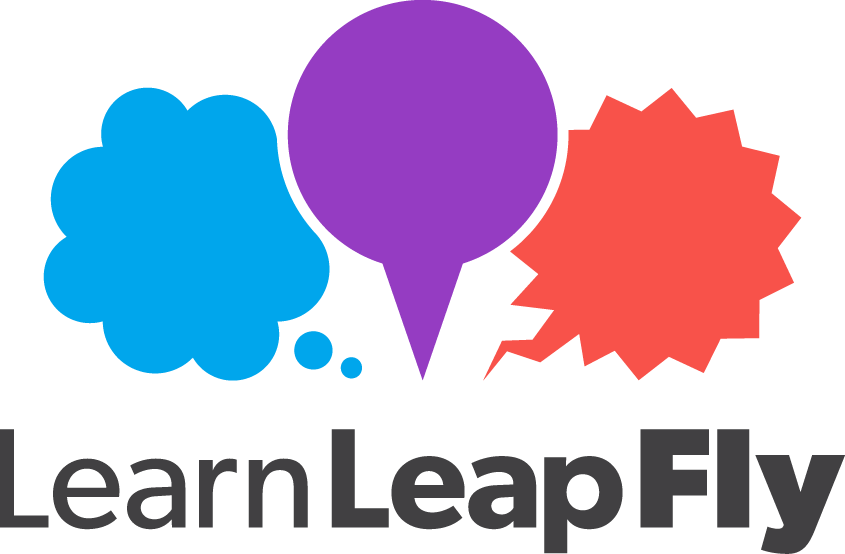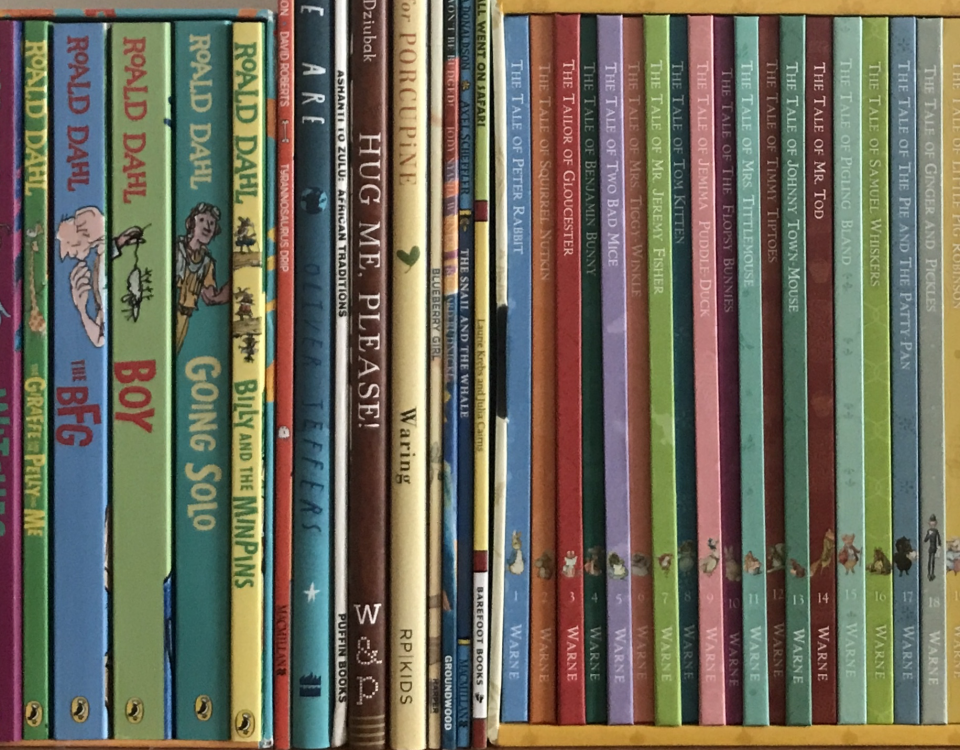For thousands of years, story is the means by which we've recorded our history. It’s the means by which we've entertained each other. It’s the means by which we've educated our young. Story is a universal human experience, and a fantastic motivator for learning—especially learning to read.
Learning to read opens up an incredible world of story. If you can read, stories no longer have to be told from person to person. Stories can be written down, giving us a way to share our experiences that transcend language, culture, and even time.
This is why we use story-based learning as the foundation of our Kasuku Stories Learning Software.
What is Story-based Learning?

Story-based learning is the idea that learning activities are centered around stories. As children read stories, we reuse the settings, the characters, the objects, the words as the scaffolding for the Kasuku learning activities. In other words, our learning activities adapt and change to reflect the story that was last read in Kasuku Stories. This creates a memorable and relevant learning experience.
Let’s take an example: Greedy Rahim is a story about a boy who eats too much fruit, and get's sick. There are things you could learn from the story itself. Things like: "actions have consequences", or "listen to your mother", or "don't eat too much fruit", but there are many more ways that we can make use of the content of this story in our learning activities.
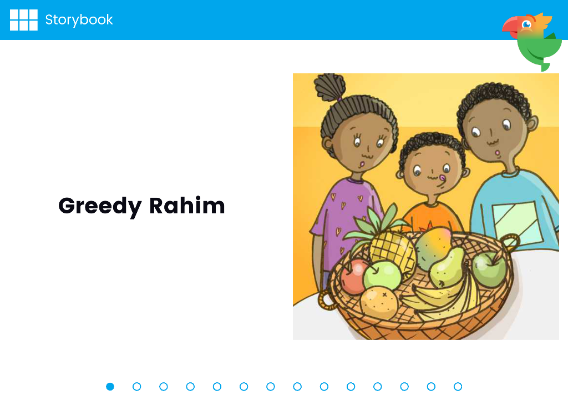
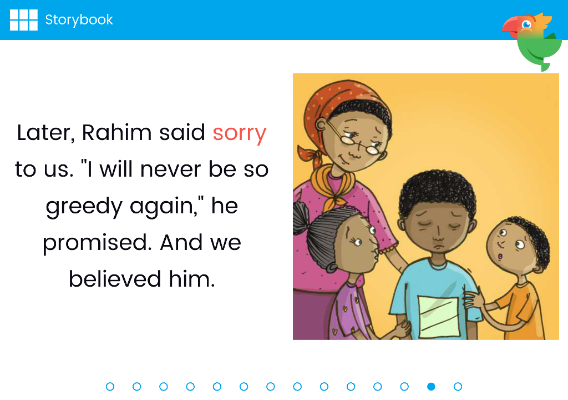
In colouring mode, the Notebook is helping to reinforce the concepts and characters from the story by using the story panels themselves as backgrounds for the drawing activities.
The Notebook is also used both as a restful, exploratory activity, and as a way of introducing the basic dexterity needed to form letters and numbers.
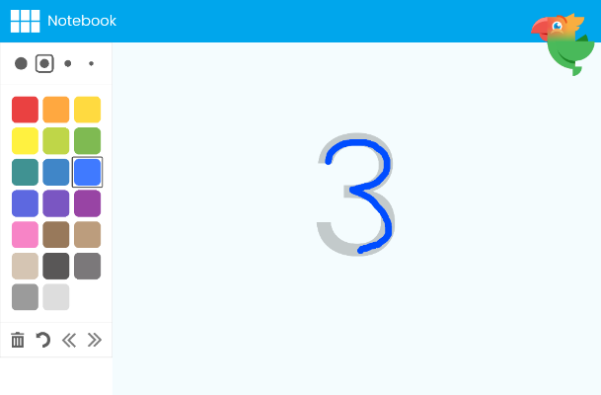
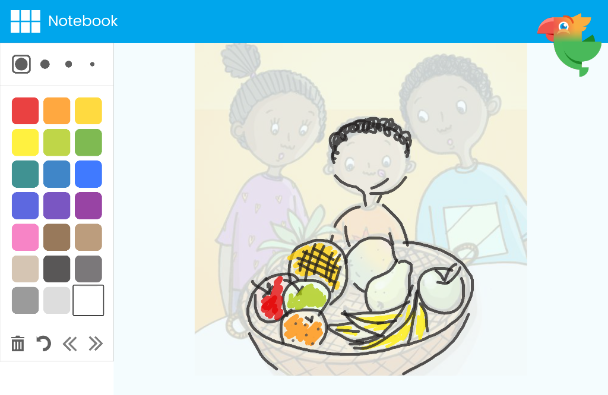
Next we have the Numbers activities. Even though Greedy Rahim is an example of a story that doesn’t involve numbers in the story content (the story itself isn't about counting), we still reuse the key elements of the story in our counting games: fruit.
As we add new stories in our updates, we will add new counting objects to our collection. The activities will continue to adapt to take advantage of these new counting objects as they appear.
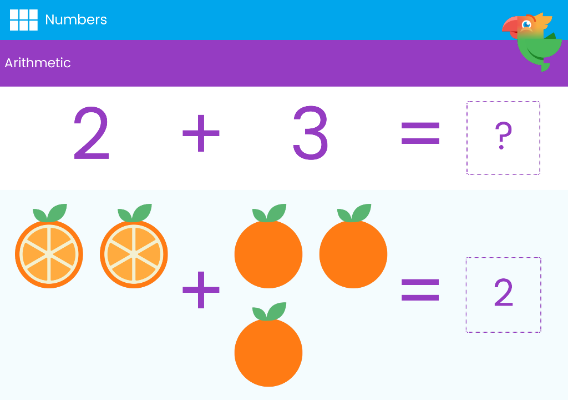
Finally, the Words activities make use of the vocabulary of the story directly. As children are learning letter names and letter sounds, we take the opportunity to tie these concepts back to the story content by using words that they have recently read.
We also use the story itself as reward. Once a child successfully puts a word back together, Kasuku will occasionally read the page that contains this word as a reward, so that children can make connections between a word and its story context.
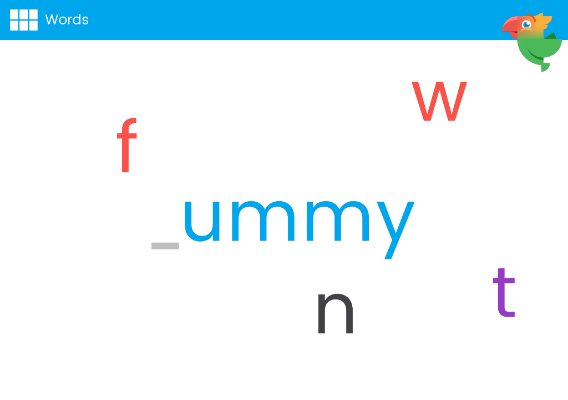
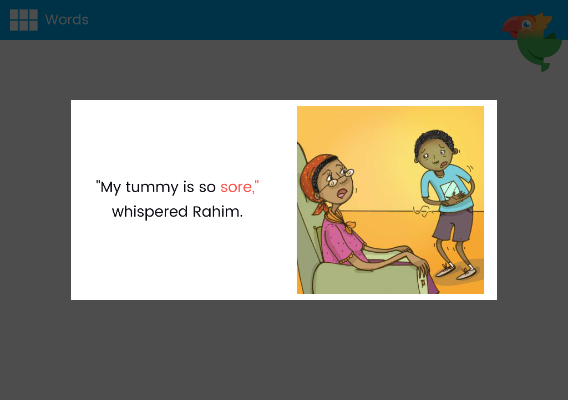
New Languages, New Cultures
There’s one more distinct advantage to using story-based learning. Story-based learning lets us naturally and seamlessly localize Kasuku Stories to other languages and cultures.
Because the Kasuku story-based learning framework is modular, by changing the underlying stories, theKasuku learning activities automatically adapt to the new material. The collection of stories need not be the same in every language, and can be localized to accommodate accents and other cultural differences.
In short, story-based learning allows us to create an imaginative, exploratory, and culturally relevant learning environment. Over time, we envision that Kasuku Stories will be used as simply that, a storybook containing hundreds—even thousands—of interactive stories for children to explore.
But don't take our word for it. Try Kasuku Stories today and let us know how it works for you!
